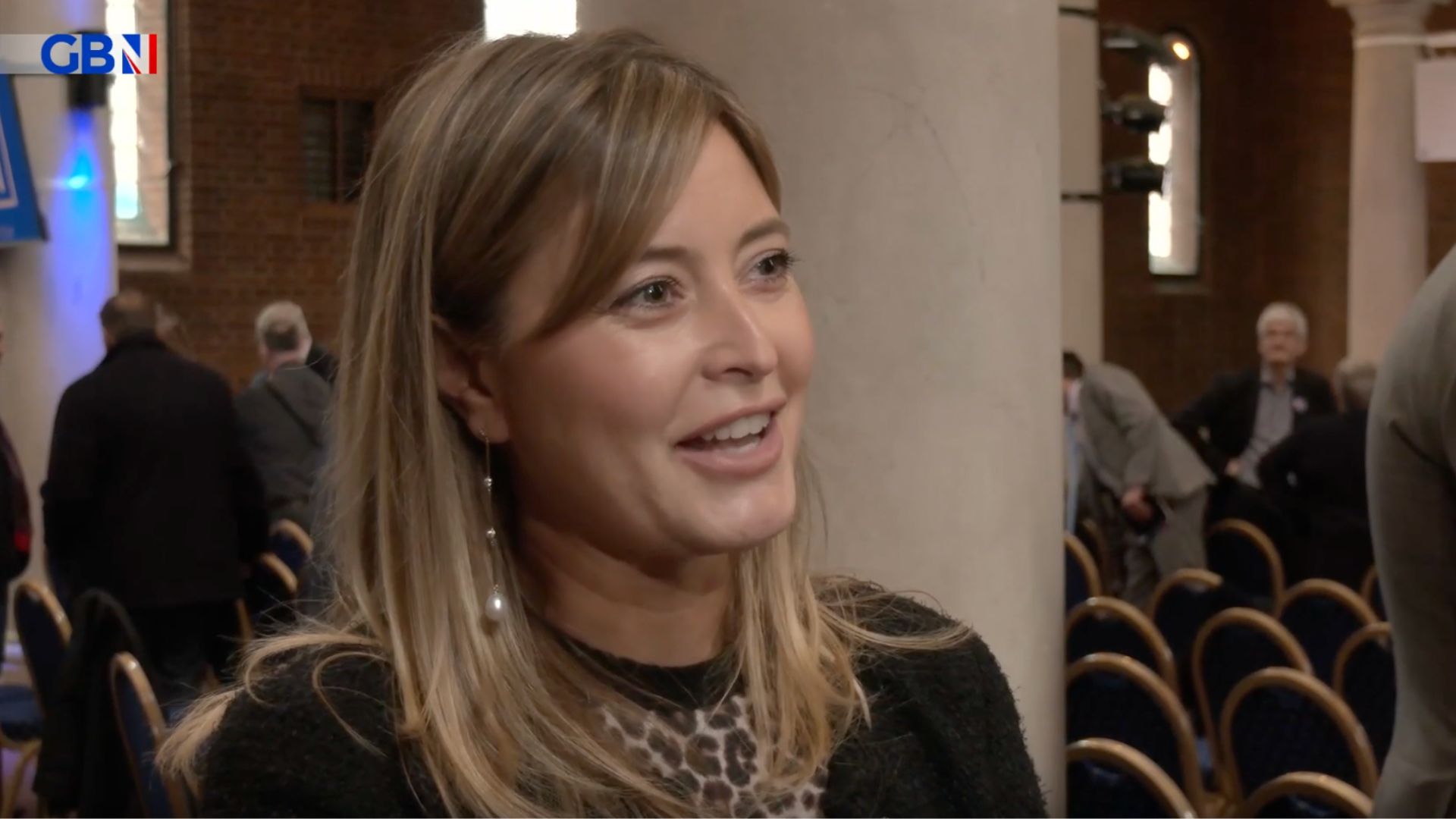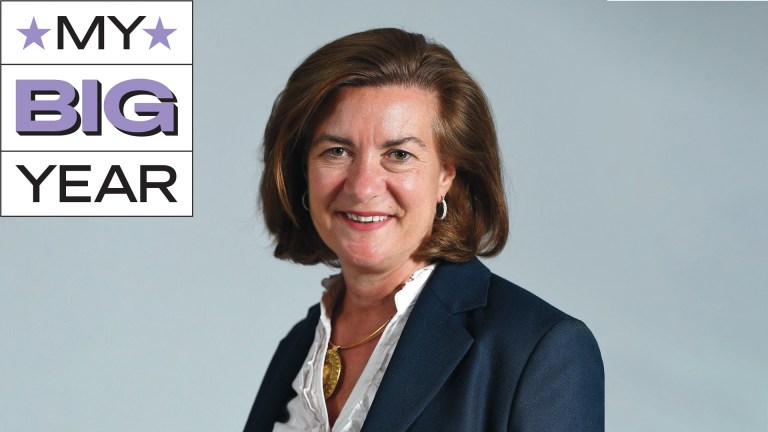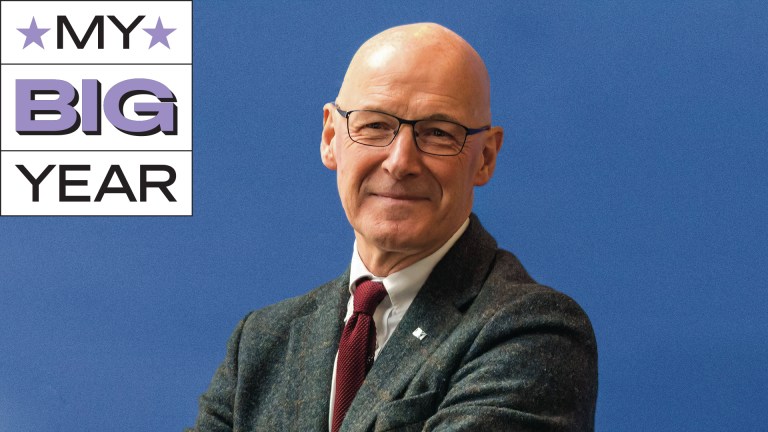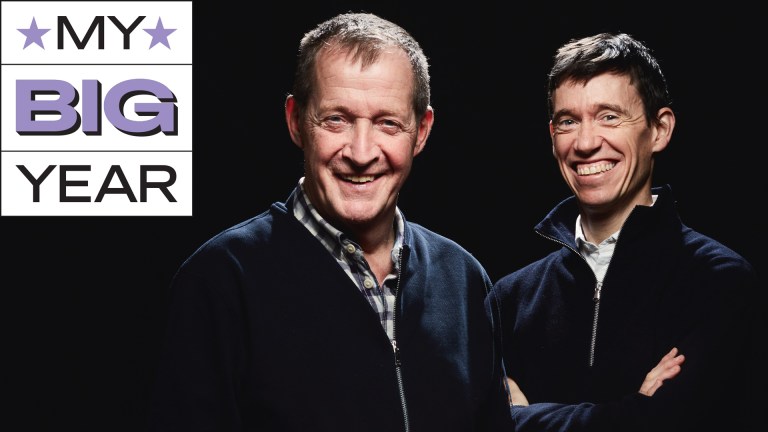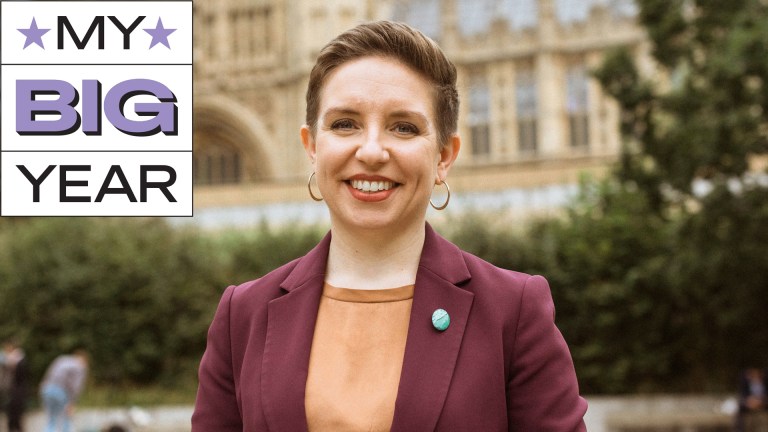Speaking to GB News at the launch of Liz Truss’ Popular Conservative movement, Holly Valance – Australian actress and wife of billionaire Tory donor Nick Candy – channelled this folk wisdom.
Holly Valance insisted that progressives usually ‘wake up’ after they start “either making money, working, trying to run a business [or] trying to buy a home.
“Then you go to the right,” she said.
It’s true that older people are far more likely to vote Conservative. The Tories are now the most popular party only among the over-70s, 43% of whom back the party, YouGov polling suggests. Just 9% and 10% of voters in the 18-24 and 25-29 demographics back the Tories, respectively.
Life-cycle trends – in which people tend to vote differently based on their age – are real, says professor Duffy.
“People go through life stages, leaving home, getting married, having kids, owning a home. It’s happening much later now, or not at all, but that does change values and attitudes as you go through those different stage,” he said.
The ‘silent generation’ (born between the wars) and baby boomers were both five percentage points less conservative than the national average at age 35, analysis by John Burn Murdoch suggests. By the age of 70, these cohorts were around five points more conservative than the national average.
But millennials aren’t following the trend.
At 35, millennials are around 15 points less conservative than the national average. A mere 12% of Brits in their 30s plan to vote Tory in this year’s general election, and 16% in their 40s. By comparison, 58% and 52% plan to vote Labour.
“Those life-cycle trends are massively attenuated by the cohort effect, which is how their life chances have been shaped by what’s going on in their formative years,” professor Duffy explained.
Younger to early middle-age feel that the social contract is broken, he added – and policy choices have repeatedly ignored people under 40 years of age.
“Policy choices have repeatedly favoured older people, such as protecting pensions and propping up a broken housing market, whilst ignoring issues like childcare provision.”
“Generation-on-generation economic progress ground to a halt as economic growth stalled, with millennials bearing the initial brunt of this stagnation.”
Younger generations have also been shaped by the turbulent political events of their early adulthood. Millennials came of age directly after the 2008 financial crisis, entering a rocky job market. And now, they’re having kids – at a time when childcare costs more than ever, with precious little government assistance available.
Home ownership explains part of the puzzle. Younger people haven’t been given the opportunity to get on the housing ladder, a life step that has traditionally driven conservatism.
More than 50% of UK baby boomers owned property by age 30, compared to less than 30% of millennials. Around half of this younger demographic are likely to rent well into their 40s. Research conducted by property website Zoopla last year shows that four in 10 under-40s have given up entirely on owning a home.
“It will take a huge change in the political offer to bring younger groups back, and having a vision for dealing with those really broken bits of the economy,” professor Duffy said. “The housing market is key to that.”
But the Conservatives have increasingly focused on culture war issues over economic ones, a policy choice that entrenches, rather than broaches, generational divides.
“Younger people are by definition more comfortable with social change than older generations, because they won’t socialised into previous traditions,” professor Duffy said.
Just 38% of people aged 16-24 agree that “political correctness has gone too far” – compared to 76% of those aged 55 and above. Fewer than one-in-five of the younger group say the British empire is something to be proud of – compared to 44% of the older one.
However, we shouldn’t write the death warrant of conservatism just yet. On some economic areas such as the balance between welfare and taxation, younger generations do not come across as particularly left-leaning. Baby boomers and the pre-war generation are more likely to agree that the government should spend more money on welfare benefits for the poor, even if it increases taxes.
“Conservatism, or a different version of conservatism is not necessarily going to remain anathema to [millennials],” professor Duffy said, offering a slither of hope for Holly Valance and her ilk.
“But you would need a huge change in the political offer, including fixing the housing market, to bring these groups back.”
